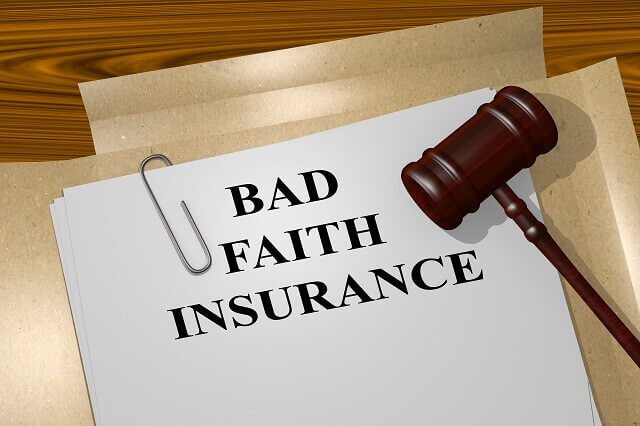How Semi-Truck Black Boxes May Provide Evidence for an Accident Claim
You may know that airplanes have “black boxes” that record what was going on with the aircraft in the moments leading up to a crash. However, you may not...
Read more
If you believe television commercials, you might actually think that your auto insurance company is on your side. However, if you have ever been through an auto accident insurance claim, you know that collecting payment from the insurance companies is an adversarial process in which accident victims must carefully protect themselves in order to avoid resolving their claims for a fraction of what they are rightfully owed.
In some cases, the insurance companies will be well within their rights to deny accident victims’ claims for compensation. For example, if there is no evidence of fault (or if there is a legitimate dispute as to fault), then a liability insurer does not have to pay voluntarily. Likewise, if the statute of limitations (limited time to bring a claim) for a victim’s claim has expired, then the at-fault driver’s insurer is not required to pay, regardless of the existence of any evidence of fault. Nonetheless, your own insurance may pay for medical expenses and wage losses under personal injury protection (PIP) or medical payments coverage.
While there are some legitimate grounds for auto insurance companies to deny payment to accident victims, many denials involve bad-faith insurance practices. Insurance companies can legitimately dispute claims when questions remain unanswered; they cannot refuse to investigate and they cannot deny payment when liability is clear. So, if you are struggling to collect payment for your injuries, is it because there is an issue with your claim? Or, is it because the insurance company is using bad-faith tactics to avoid paying just compensation?
When you file an auto accident insurance claim in Oregon or Washington, the insurance companies have a legal obligation to process your claim in good faith. Of course, the opposite of good faith is bad faith; when good faith is required, acting in bad faith constitutes a violation of the law. Having said that, bad faith law differs in each state. Some state laws are very good a protecting and reimbursing consumers that have been the victim of insurance company bad faith practices. Other states’ laws are not so good at protecting consumers.
As an auto accident victim, the burden is on you to prove that you are entitled to financial compensation. However, Oregon and Washington’s bad-faith insurance laws provide you with some important protections. For example, when defending against your claim, the insurance companies cannot:
If you believe that the insurance companies are handling your auto accident claim in bad faith, you will need to hire an attorney to handle your claim. Unfortunately, in our experience, bad-faith insurance practices are far more common when accident victims are not represented by legal counsel. Hiring an attorney to handle your claim for you may be all it takes to get the insurance companies to fall in line (and, remember, there are several other reasons to hire a lawyer for an auto accident as well). However, if the insurance companies still continue to deny coverage in bad faith, then your attorney maybe able to take formal legal action in order to make sure you receive the compensation to which you are legally entitled.
Oregon and Washington’s auto insurance laws require the insurance companies to pay just compensation in good faith and consistent with the terms of the policies they issue. If your claim has been denied in bad faith, not only are you still entitled to full compensation for your accident-related losses, but you are entitled to additional compensation for the insurance companies’ bad-faith practices. This may include full payment of your court costs and attorneys’ fees plus additional damages of up to three times the value of your original claim. Once again, to collect this additional compensation, you will need to work with an experienced attorney in insurance bad faith practices.
While there is virtually nothing you can do to prevent a claims adjuster from making the decision to deny your claim in bad faith, there are steps you can take to protect your legal rights in the case of a bad-faith denial. These steps include:
If you are dealing with bad-faith insurance practices, or if you have just been injured and want to make sure your claim is not unjustly denied, we encourage you to contact us for a free consultation about your legal rights. To discuss your insurance claim with one of our experienced lawyers in confidence, please call 503-222-6333 or request an appointment online today.